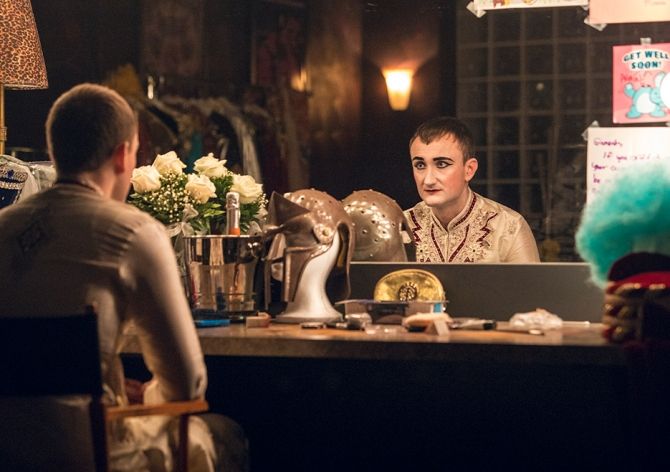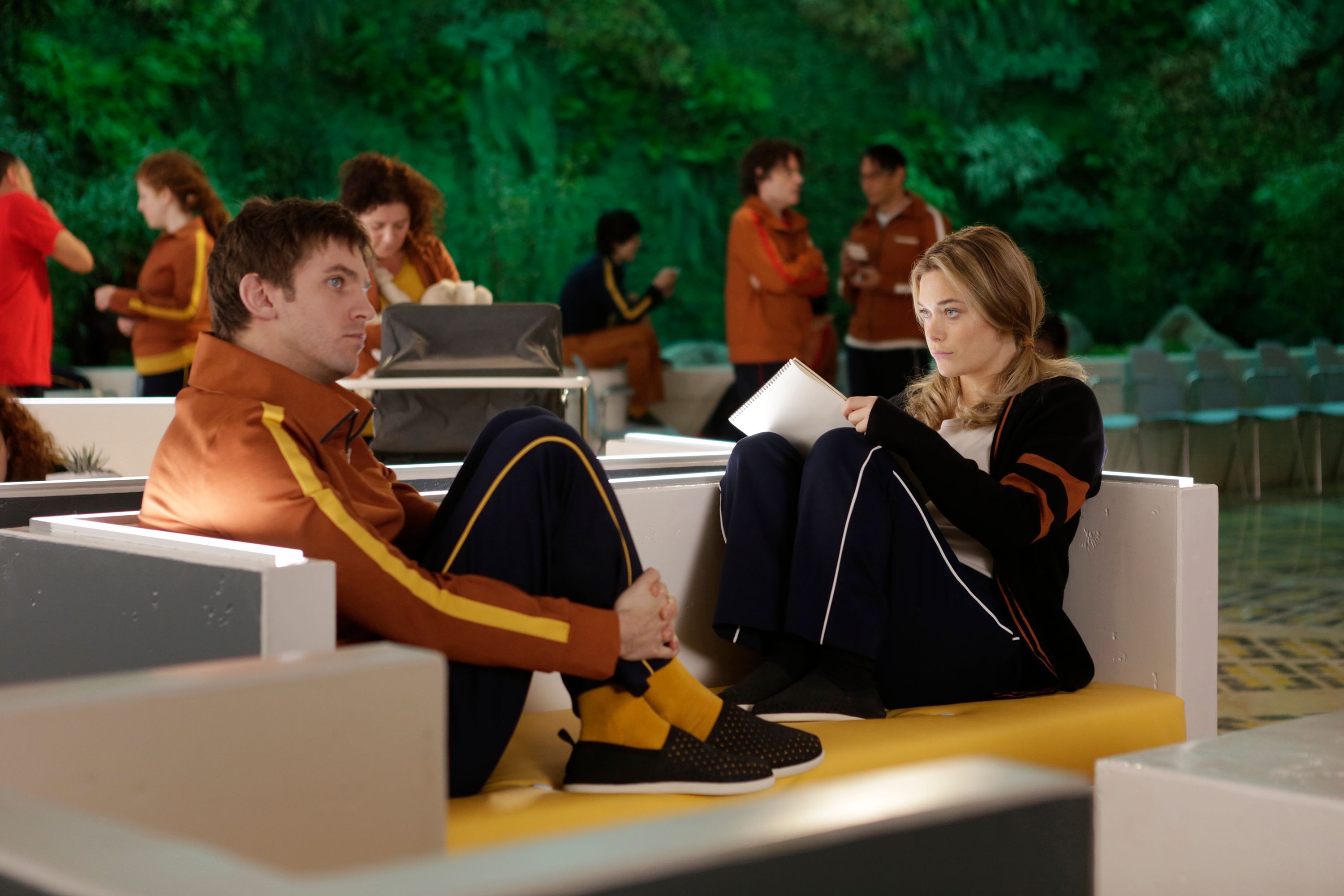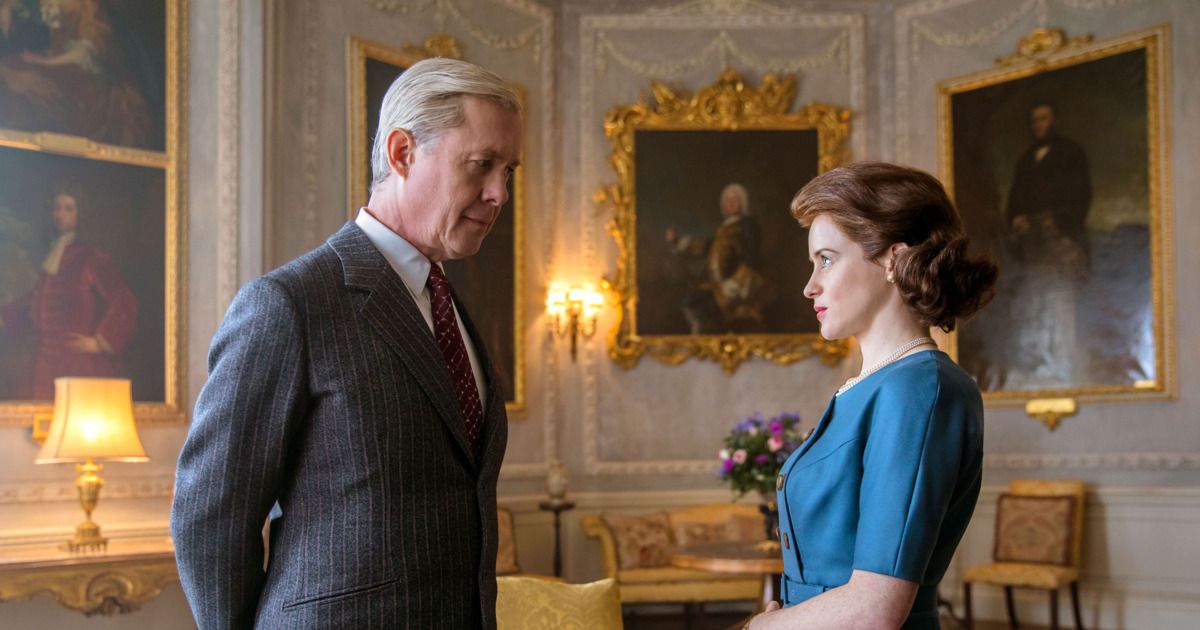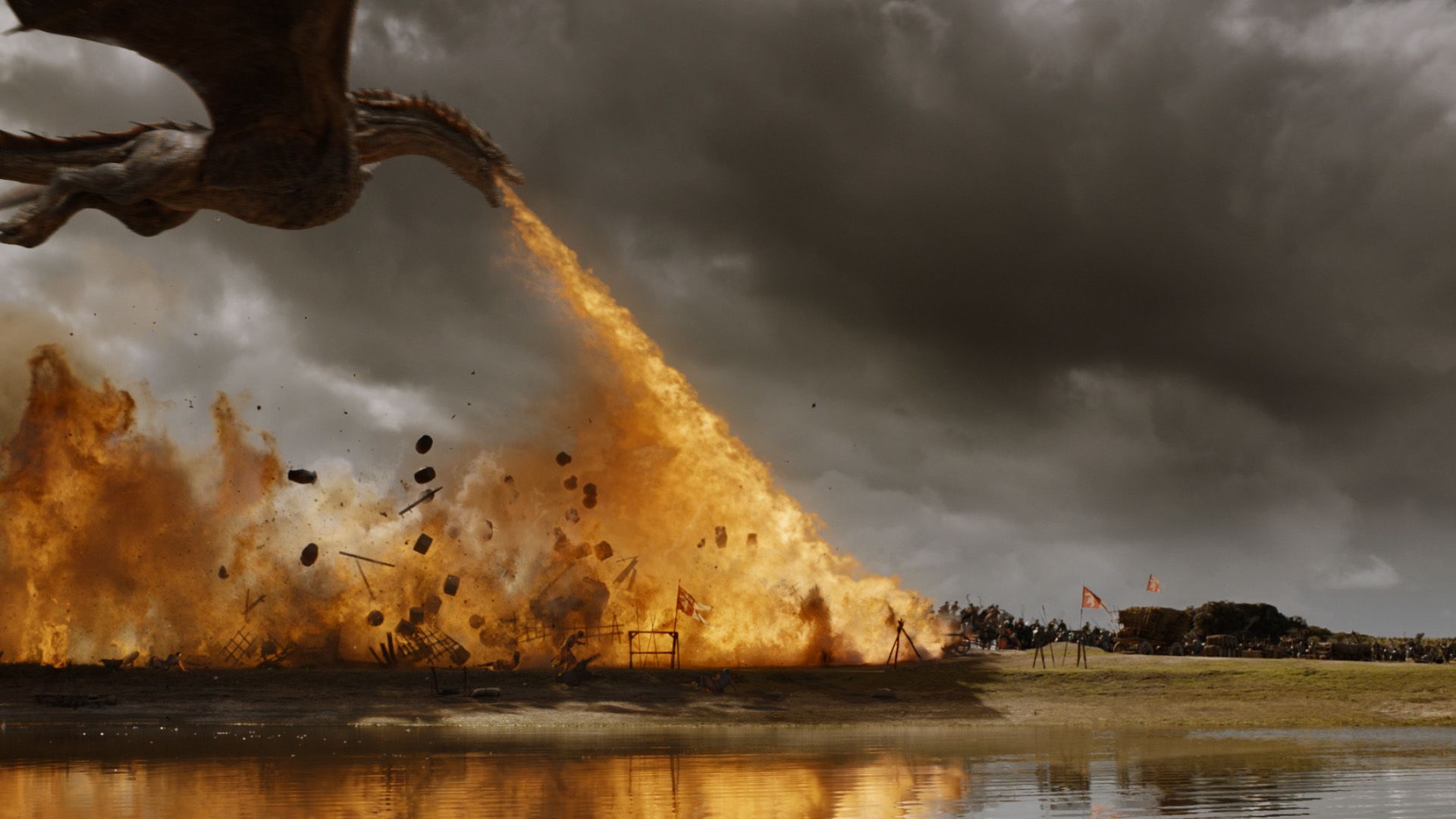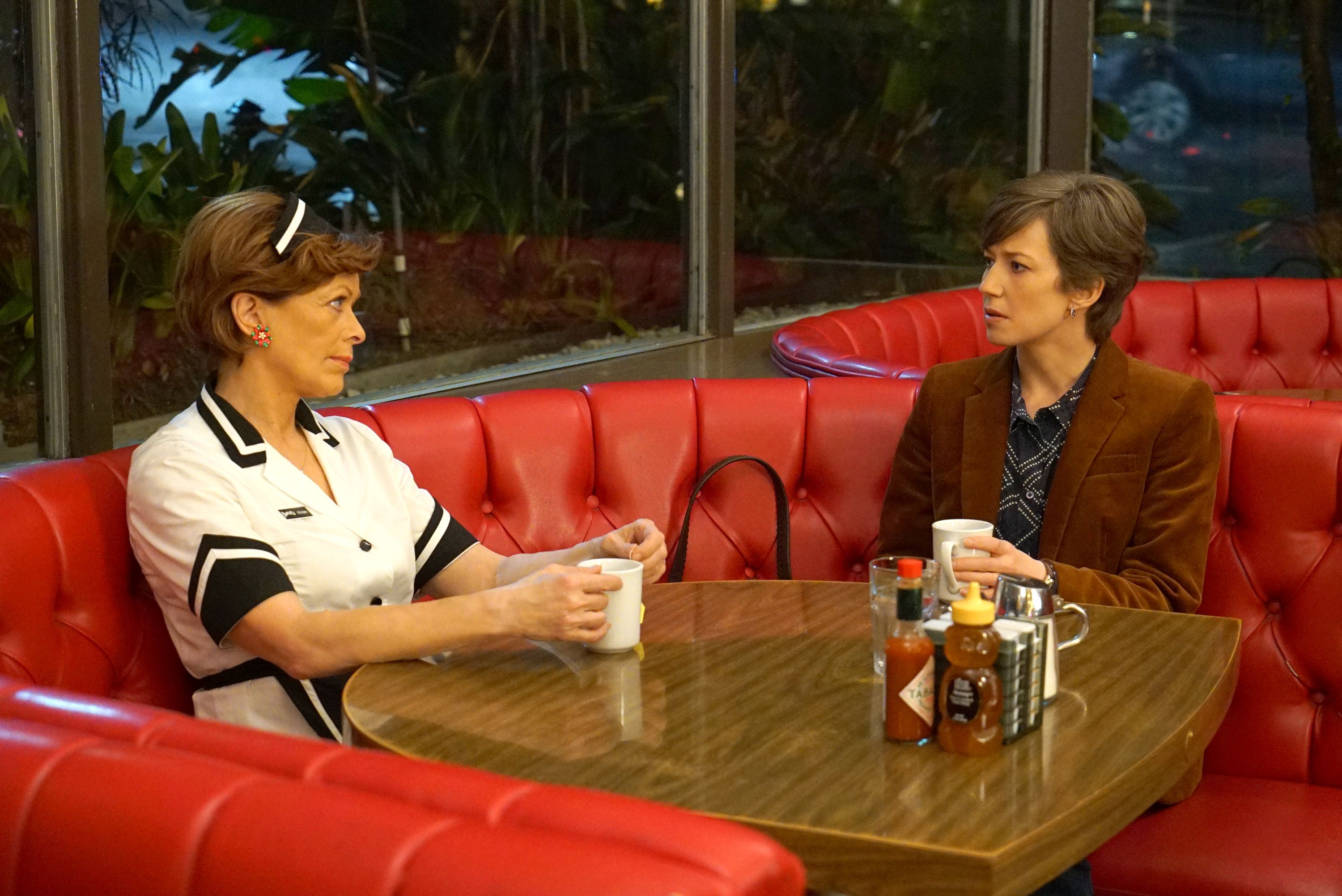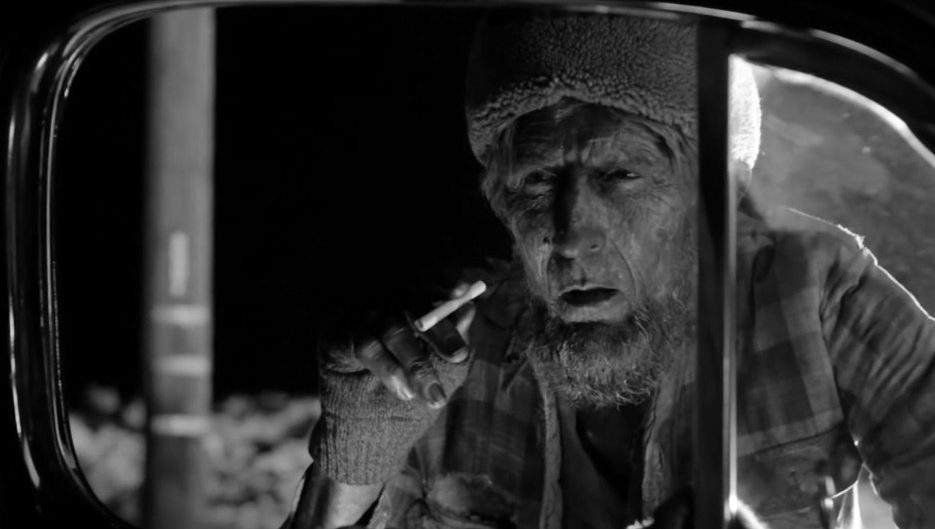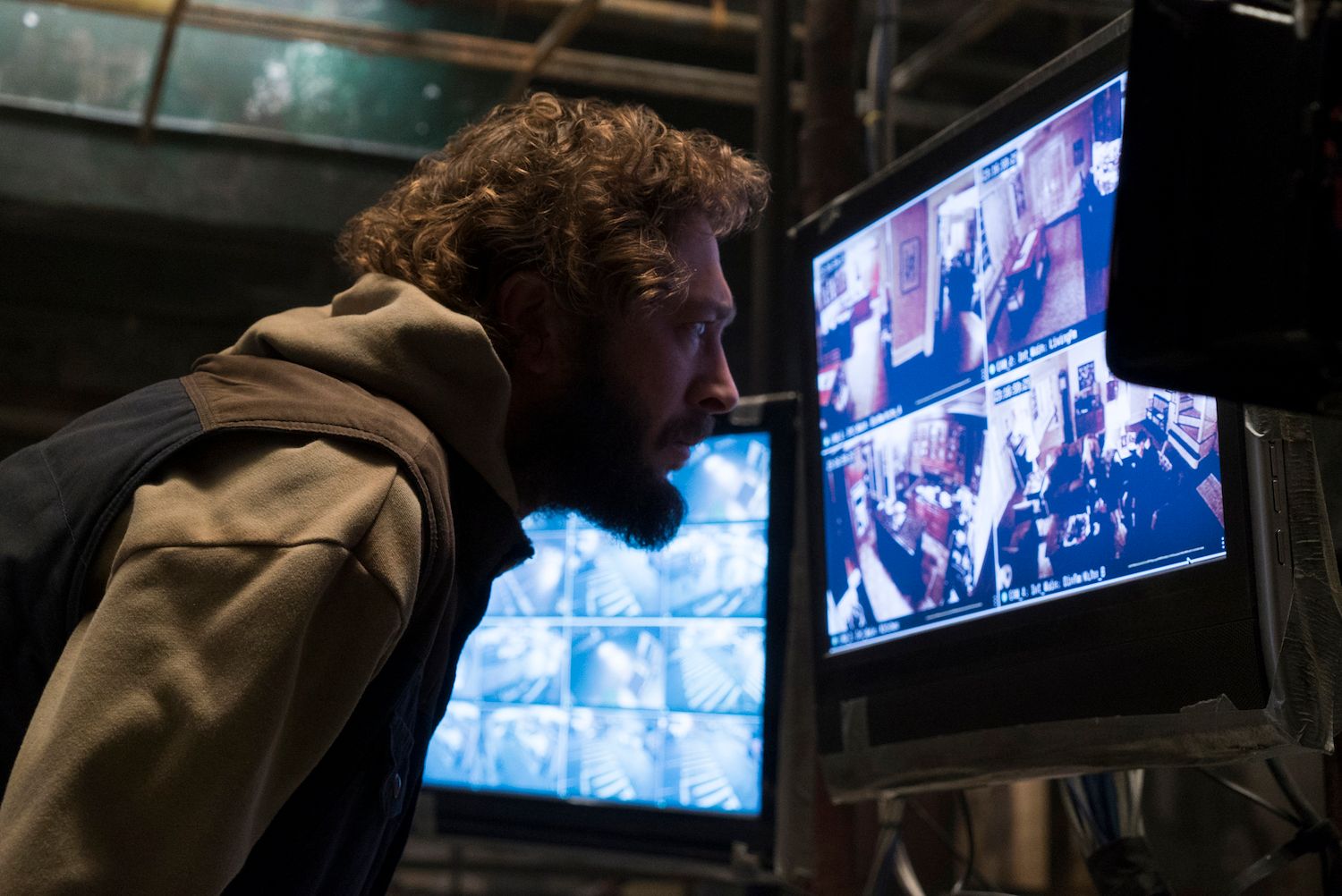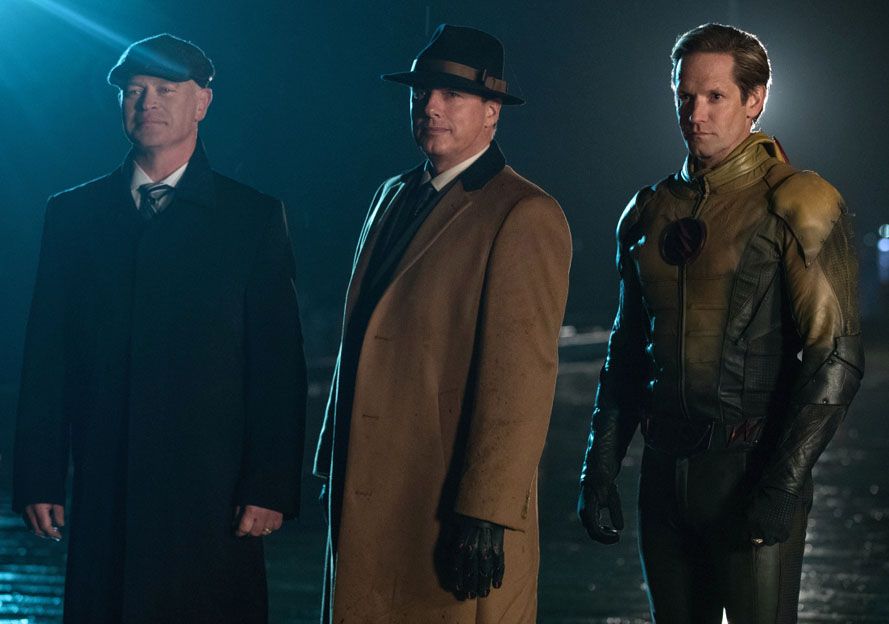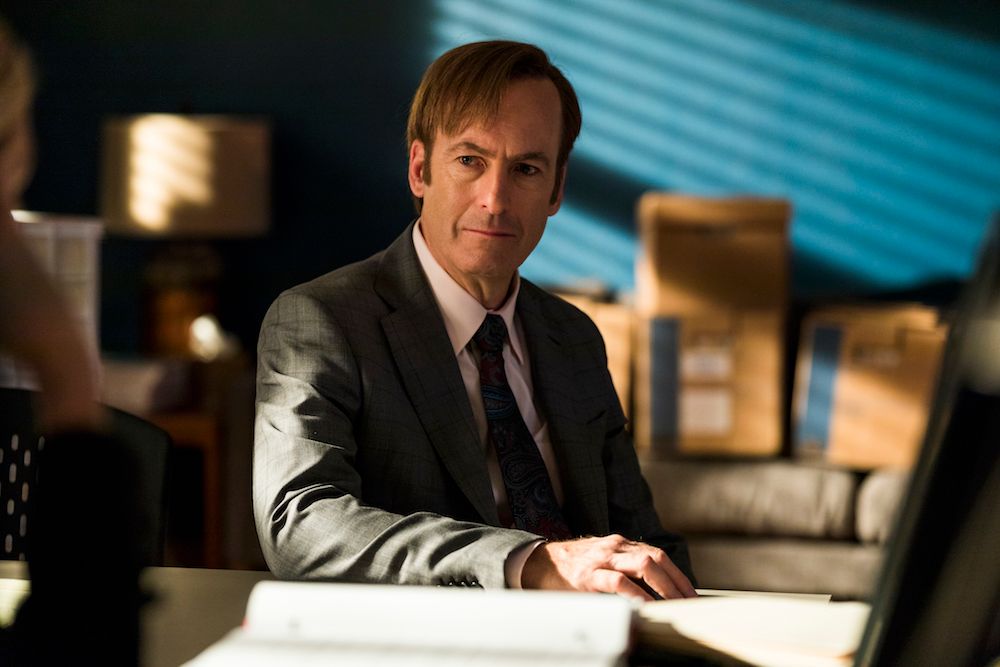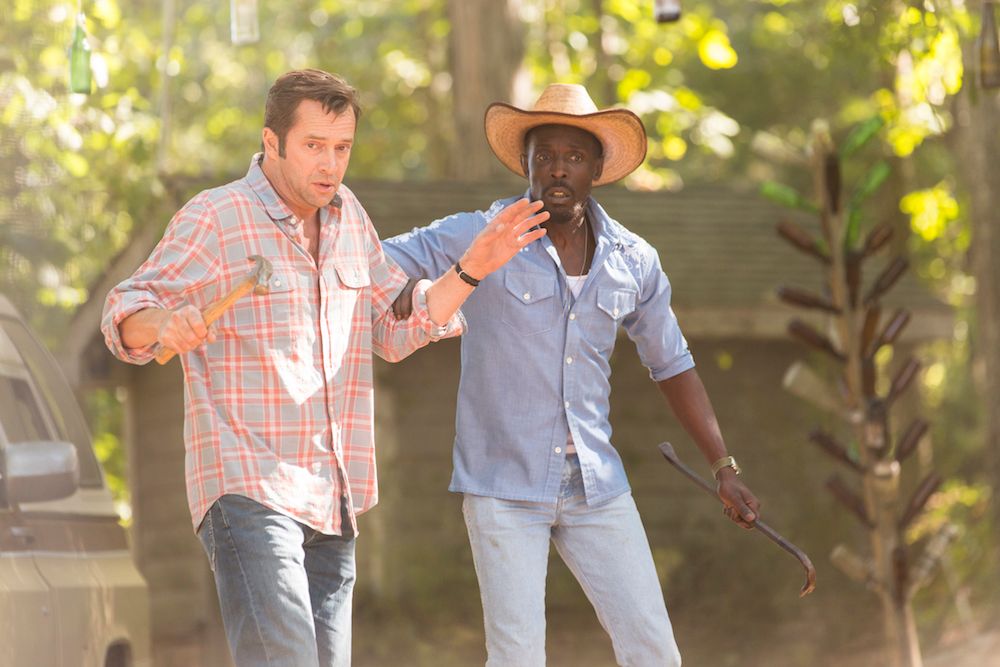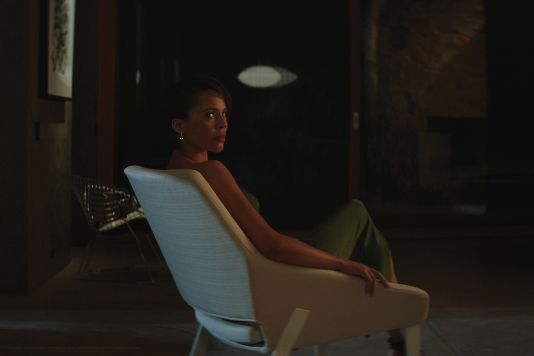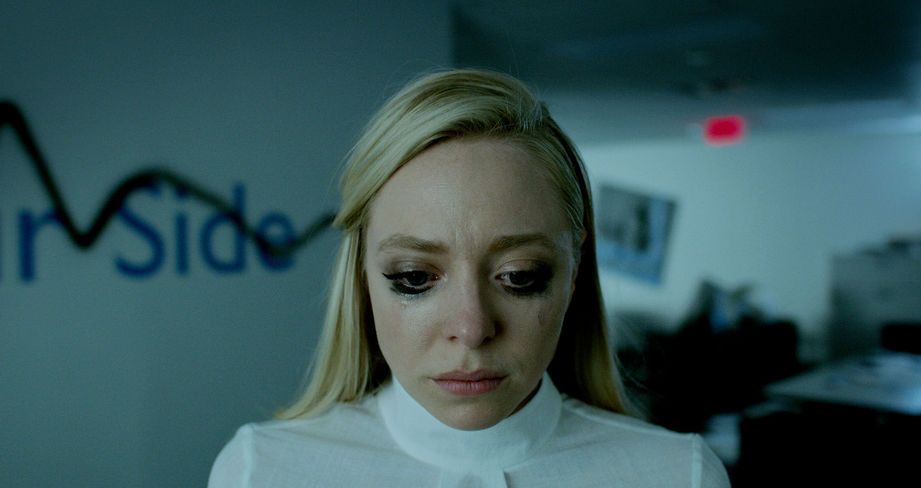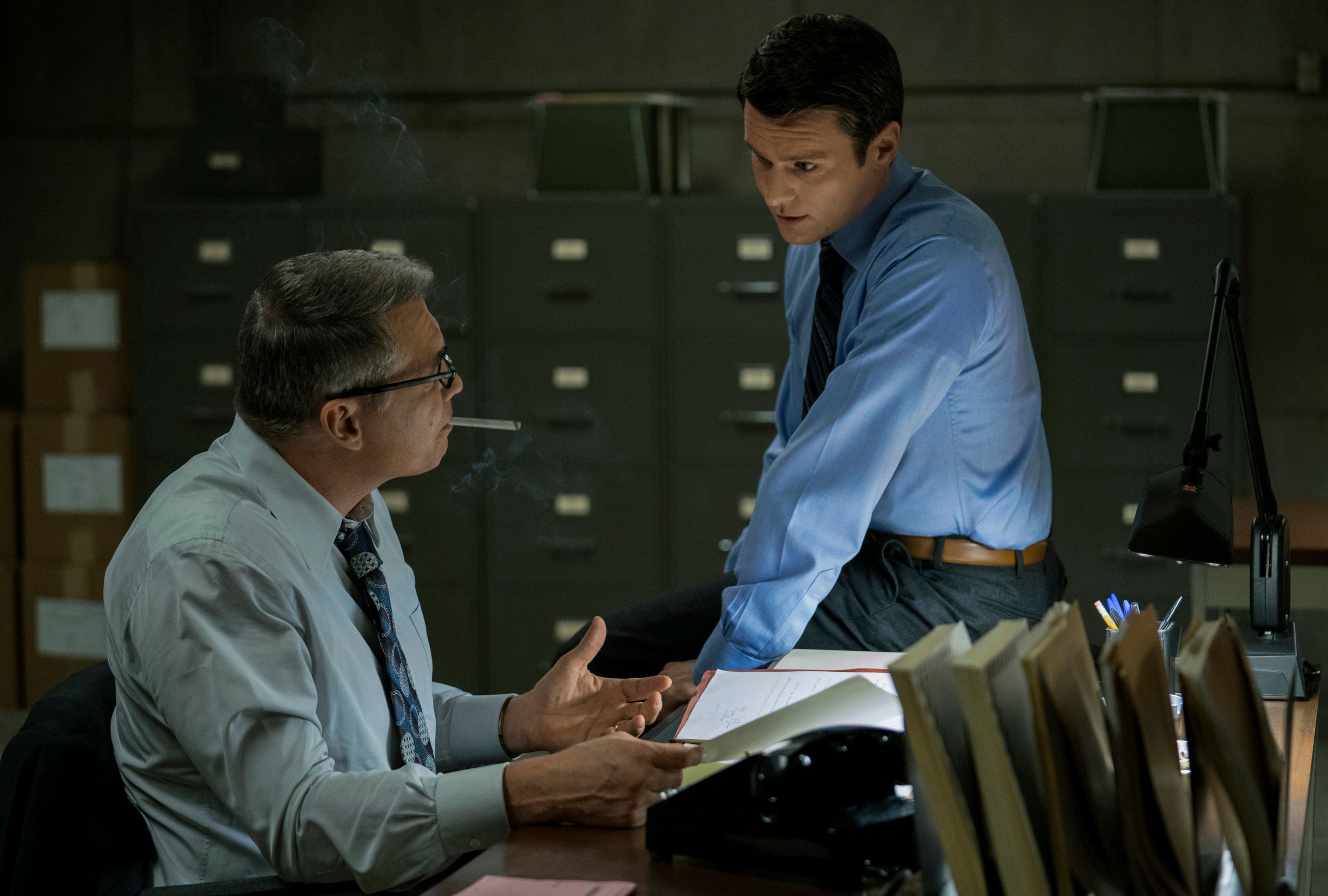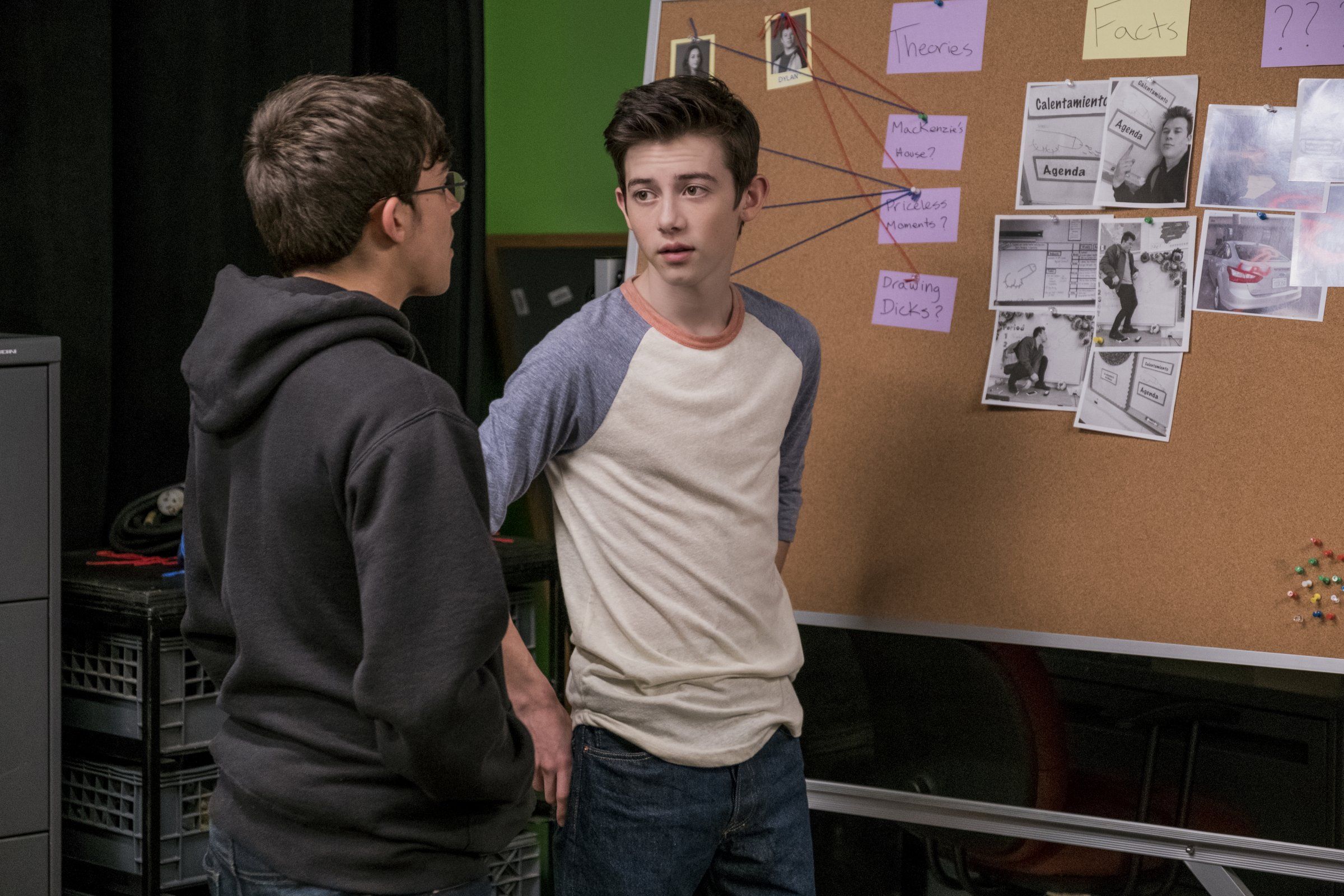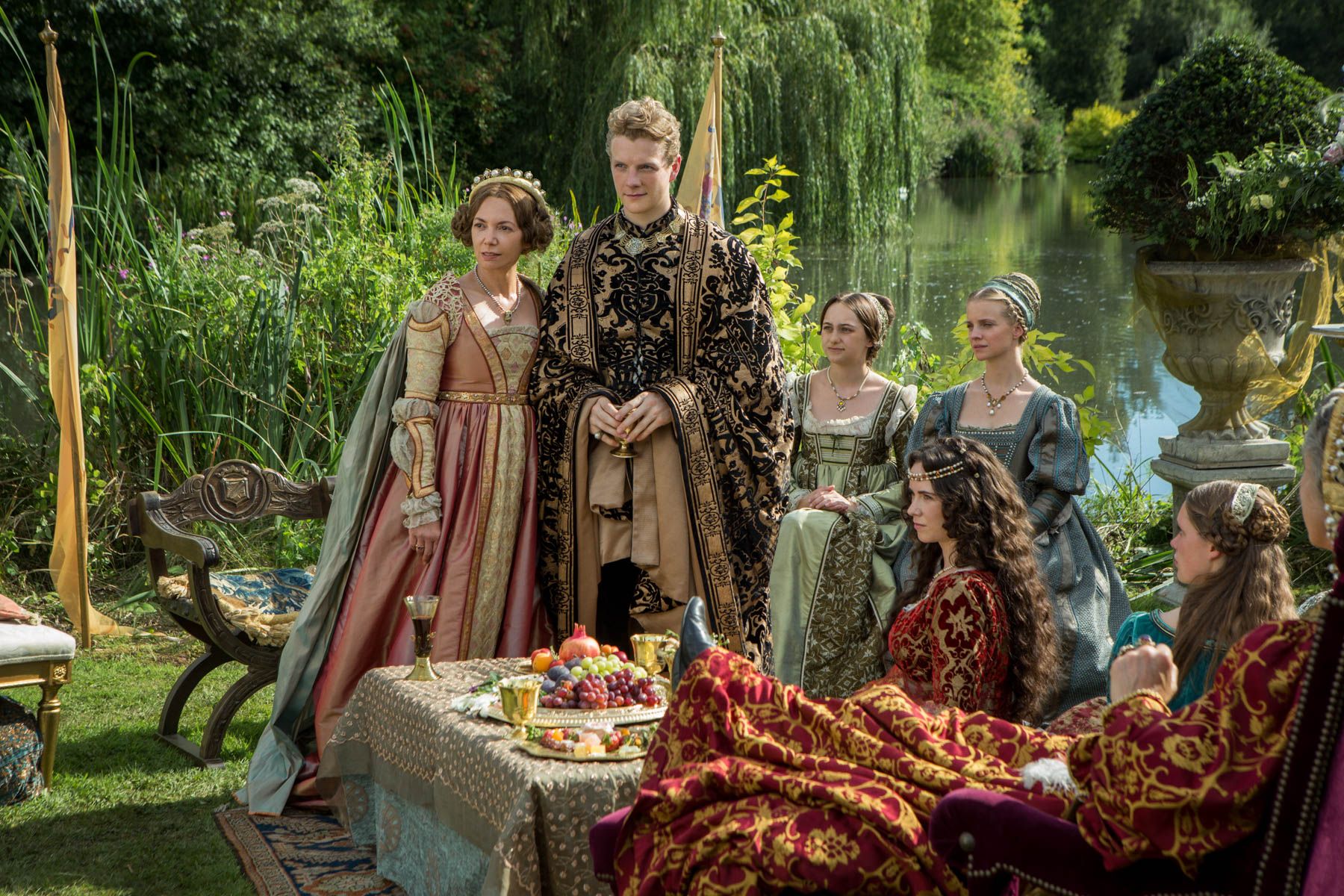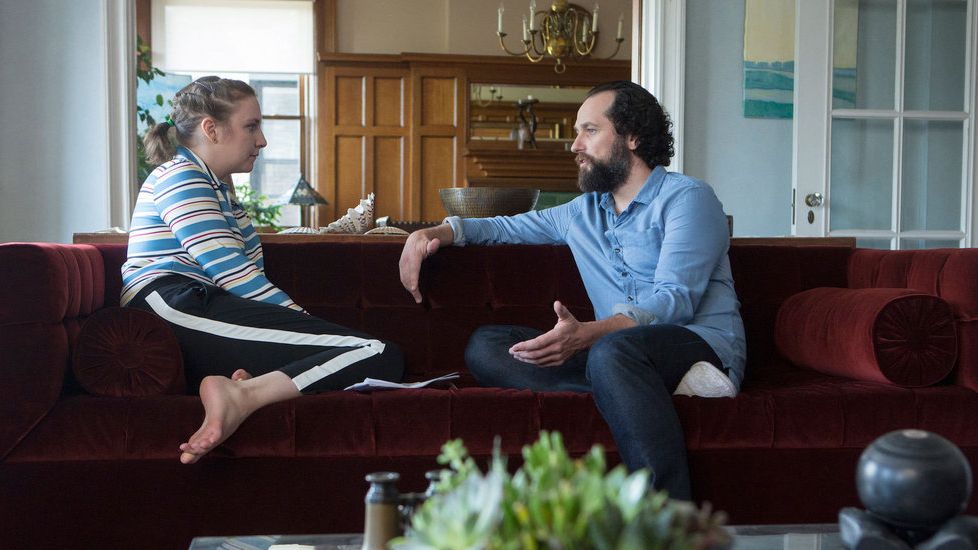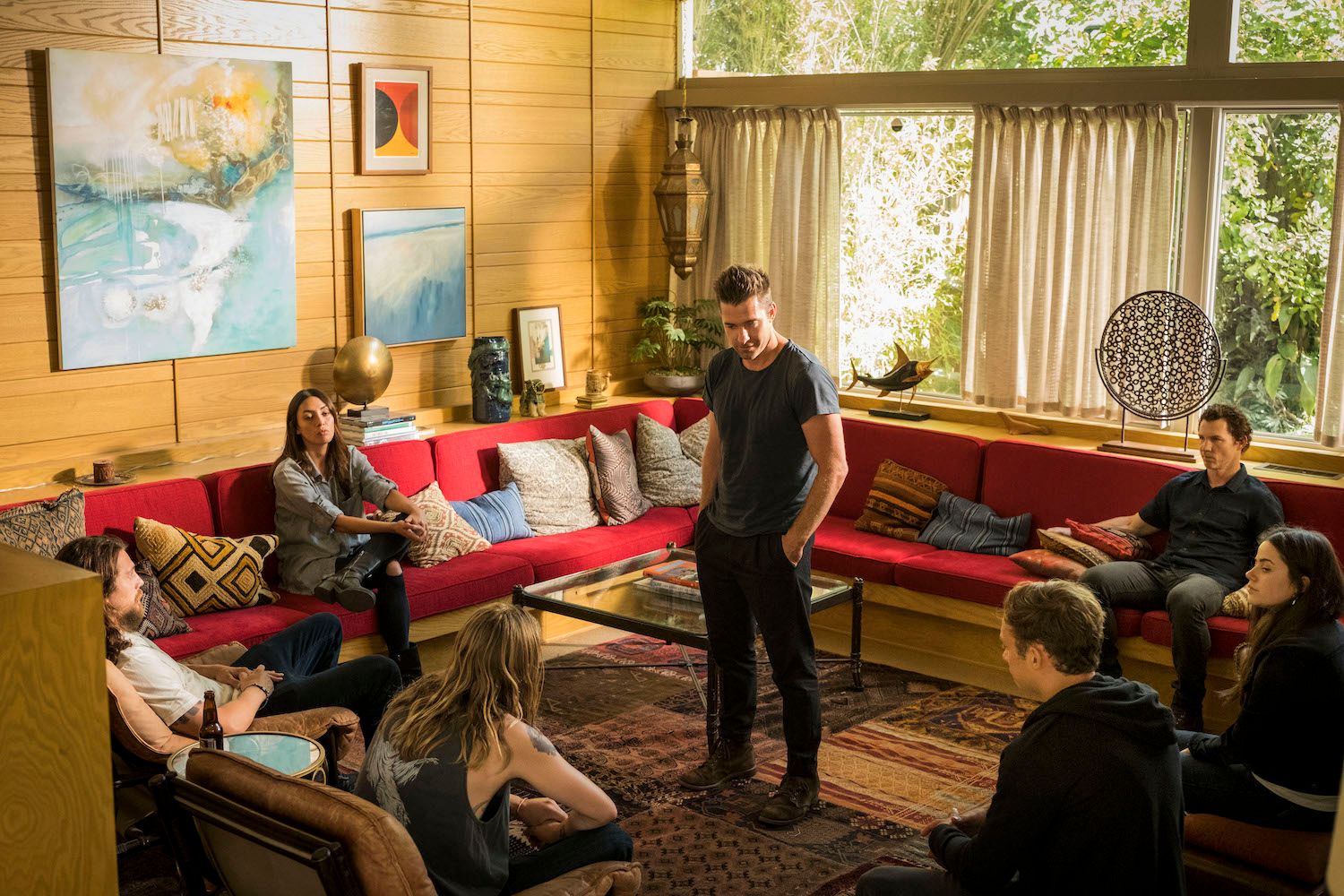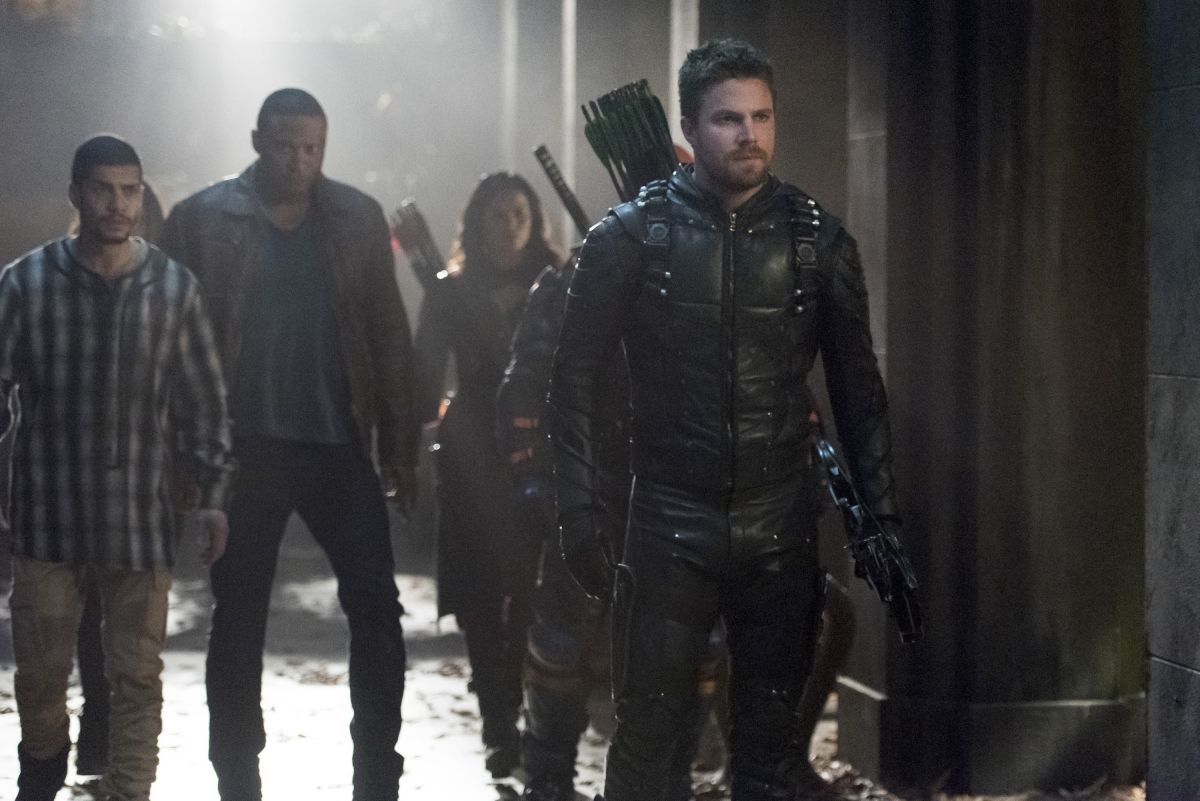For TV fans, the Peak TV era is both a blessing and curse. There is so much great television out there, and yet there is also too much to keep up with. Halfway through the year, Chris Cabin and I pause and take stock of the great series and episodes that have already aired, but now that we've reached the end of 2017, we've updated our list with the best episodes since June as well.
If you don't see your favorite on here, fear not -- there was a lot of great TV, and while we tried to get to most of it, we can't watch everything. Plus, there are also absences for great shows like Big Little Lies and Feud: Bette and Joan, series I loved but where one particular episode didn't jump out at me, though the works as a whole are wonderfully engaging (and visually stunning). Let us know your favorites in the comments, and for more of the Best of 2017, check out my top 25 TV shows of the year, Chris Cabin’s top 25, Dave Trumbore's list of the best new animated series, Emma Fraser's look at the best songs on TV, and Evan Valentine's ranking of the year's superhero TV.
A note on spoilers: If you aren't caught up with a show, skip past it!
Preacher Season 2: “Mumbai Sky Tower”
Writer: Sam Catlin
Directors: Seth Rogen & Evan Goldberg
Though Preacher ultimately lost me (and I had already struggled to return after the Season 1 finale), the new season’s second episode felt like the show coming into a creative renaissance. “Mumbai Sky Tower” was a surprisingly emotion (and visually exceptional) standalone story of the angel Fiore (Tom Brooke), who attempts to kill himself over and over again after losing his partner DeBlanc, but can’t because of his powers of immediate resurrection. The way Fiore tries to off himself in front of a crowd and then realizes that he can turn that into an act (with increasingly gruesome ways of killing himself, before popping back up again) is a unexpectedly touching story, especially when he “finds peace” through the Saint of Killers. Brooke did an exceptional job of conveying Fiore’s depression and ennui, yet also his slight pleasure at entertaining the crowds. — Allison Keene
Legion Season 1: "Pilot"
It’s a bit of a cheat to pick a season premiere as a best episode, even more so a series premiere. Pilots and premieres are built and designed to immediately entice and ensnare the audience in the world that, if all goes well, will be built up and out as the episodes go on. And yet, it’s impossible to ignore the immediate and ruminative delights that Noah Hawley lays out in the series premiere of Legion. Tricked out with all manner of “Look Ma!” camera movies, flourishes of bright color, and a superb cast fronted by Dan Stevens and Aubrey Plaza, the story of David Haller (Stevens) — one of the most formidable mutant in the X-Men universe — is first and foremost a trip to witness. The scenes in Clockworks are dazzlingly expressive and bold even by FX's standards. And at the core of the show's success is Hawley's unwavering interest in diving into his main character's knotty inner issues, as the show fixes itself more on the importance of self-knowledge, skepticism, and self-care in defeating villains than the ability to turn a person inside out or grow blue hair and hang from the ceiling.
Nevertheless, Hawley decides to cap this electrifying hour of visual storytelling off with a thrilling escape that includes telekinetic tosses, burnt corpses, and a beachfront rescue via helicopter should show just how much ambition the visionary has culled from here. With “Chapter 1,” he’s issued a serious challenge to any Marvel adaptation that thinks exclusively in terms of plot, which is to say most of them, and by the end of the season, the challenge stands. — Chris Cabin
The Crown Season 2: “Vergangenheit”
Writer: Peter Morgan
Director: Philippa Lowthorpe
Though each of The Crown’s episodes are distinct, one of that most affecting was “Vergangenheit,” which documented the Duke of Windsor and his wife’s social affiliations with the Nazi party, and how — had he remained King — England might have surrendered to Hitler. There are a lot of damning sequences in “Vergangenheit,” not the least of which are the scenes of archival footage where Edward is touring Nazi Germany and meeting Hitler. But “Vergangenheit” was also a consideration of faith, as Queen Elizabeth (Claire Foy) invites Billy Graham (Paul Sparks) to England, and asks for his counsel regarding forgiveness as a Christian virtue. How can she possibly forgive her Nazi-sympathizing uncle, who suggested to the Germans they keep shelling England because that would likely make them give up? It’s a complicated episode full of emotional stress and not a particularly satisfying conclusion, even though Edward is booted out of England forever. It’s simply a necessary acknowledgement of a hard truth about one’s family — which is at the heart of The Crown. — Allison Keene
Game of Thrones Season 7: “Spoils of War”
Writer: David Benioff & D. B. Weiss
Director: Matt Shakman
“Spoils of War” had everything that an early seasons' Game of Thrones fan might have thought would never happen. Arya returns to Winterfell, Bran and Littlefinger have a reckoning about the dagger, Jon convinces Dany to join forces with him (and … more?), and then we got that final fight where Dany rides Drogon to destroy the Lannister army. That battle — which including breathtaking scenes of the Dothraki in full fight mode, let us not forget — included not only a dragon lighting up an entire army, but some hero moments from Bronn, and a perilous(ly dumb) moment from Jaime. More than anything, it was an episode that had my heart racing, my nerves shattered, and visceral reactions to what was happening onscreen. While later episodes in Season 7 felt, at times, a little too fan service-y, “Spoils of War” was an unparalleled experience in pure joy and excitement, and was a fantastic culmination of so many storylines that we have been following for the better part of a decade. — Allison Keene
Fargo Season 3: ”The Law of Non-Contradiction”
Writers: Matt Wolpert & Ben Nedivi
Director: John Cameron
It’s rare for a show to make it onto our list twice, but if any show deserves it it’s Fargo. Noah Hawley’s loving crafted anthology series is a work of aesthetic control and purposeful restraint, whether it’s in the muted “Minnesota nice” of its heroes, or in the deliberately swift and brutal movements of its villains. “The Law of Non-Contradiction” broke form, though, as a capsule episode and a road trip that took the show out of the tundra and to California, where Gloria (Carrie Coon) set to find out more about her recently murdered step-father. It’s a showcase for Coon’s talents, which is always delightful to behold, but it also included an extended animated sequence that illustrated her step-father’s lost sci-fi novel “The Planet Wyh,” featuring a helpful android named MNSKY. Hawley’s incorporation of animation is something nearly unheard of in the world “prestige TV dramas,” and it was a fantastic story-within-a-story-within-a-story that (with the flashback) also felt Twin Peaks-y in its use of diners and old Hollywood scams and suddenly escalated violence. A stand-out episode for what has always been a stand-out series. — Allison Keene
Master of None Season 2: “First Date”
Writers: Aziz Ansari & Alan Yang
Director: Eric Wareheim
If you’ve used online dating and lived in any major city, Master of None's “First Date” probably hit a little too close to home. Edited with finesse and paced brilliantly, this trip through a flurry of first dates, fragmented into representative flashes, allows Aziz Ansari’s Dev to react to a number of distinct types. There’s the spoiled young woman frivolously living off her parents; the flirty colleague; the busy but good-humored career woman; and, of course, the witty, warm stoner who takes him home. Ansari gives even the least admirable of these characters a relatable pulse of life. He averts treating any of them like a simple stereotype, and the results is 20-odd minutes that evokes the thrill of meeting new people and possible romantic parties while also highlight how exhausting, confusing, and repellant the dating scene can be. No small feat. — Chris Cabin
Twin Peaks: The Return: “Part 8”
Director: David Lynch
Writers: David Lynch & Mark Frost
In the middle of one of the greatest seasons of television that the medium has yet to produce with Twin Peaks: The Return, David Lynch decided to drop a bomb. After a rather short intro, involving the murder and subsequent resuscitation of Bad Cooper (Kyle MacLachlan), and an appearance by Nine Inch Nails, Lynch sent us out into the ether of history, wherein the aftermath of the creation and detonation of the atomic bomb evinces monstrous human and metaphysical effects. On its own, at less than an hour in length, the episode would count as a highlight in a career marked almost exclusively by peaks. In the realm of TV, the experimental nature of the episode and its surreal, frightening tone counted as a defining moment in the medium, the wildly rare case in which TV truly had it over anything that was seeing release in the movie theater. – Chris Cabin
The Punisher Season 1: “The Judas Goat”
Director: Jeremy Webb
Writer: Christine Boylan
I wasn’t sure about The Punisher at first. The pilot episode felt like a knock-off of some misbegotten 1980s action flick and the slow pace of Frank Castle and Micro’s budding friendship and working relationship that followed did not give me great hope. Still, there were signs throughout the first five episodes that prepared you for the most agonizingly intimate and vulnerable moments in “The Judas Goat,” in which Castle reveals himself to his erstwhile best friend, Billy Russo (Ben Barnes), who he does not know secretly works for the villainous Rawlins. The series’ true subject is how men communicate feelings, acts, and ideas that are often seen as the opposite of masculine, such as loving another man or feeling vulnerable, and seeing the joy and relief Frank gets out of just seeing his brother-in-arms is itself a kind of revelation for the series. It’s the first time that we fully know that Castle’s humanity is still alive underneath all the grief, resentment, and vengeance. And it’s that exact thing that ends up differentiating him from the confused, angry men and monsters who he hunts throughout the series, and its what makes it so much easier to empathize with him when all the bloody work is done. – Chris Cabin
Legends of Tomorrow Season 2: “The Legion of Doom”
Writers: Phil Klemmer & Marc Guggenheim
Director: Eric Laneuville
Oh boy oh boy did I love this episode of Legends of Tomorrow. Like several other series on this list, Legends vastly improved with its second season. One of the biggest reasons was thanks to its new villain team, the Legion of Doom, made up of Arrow-verse baddies Eobard Thawne (Matt Letscher), Damien Darhk (Neal McDonough), and Malcolm Merlyn (John Barrowman). The episode which bears their names came with a fantastic Eobard introduction, as well as the reveal that the speedster is being chased out of existence by Black Flash (the first time we’ve seen him return since The Flash’s Season 2 finale). All of this helps the Legion balance out their power and become a truly united force in their ultimate quest for power. It was a great episode (I wrote more about it here) that allowed the villains to have their moment to not only bicker with one another (which was gleeful fun), but it solidified them in these new roles. Plus, the hour ended with Rip Hunter (Arthur Darvill) shooting George Washington in 1776, which is really just peak Legends on every level. — Allison Keene
Better Call Saul Season 3: “Sabrosito”
Writer: Jonathan Glatzer
Director: Thomas Schnauz
In a Better Call Saul season that travelled further into the world of Breaking Bad than ever before, “Sabrosito” showed the right balance of how to keep the Jimmy McGill (Bob Odenkirk) storyline intact and still flirt with "Breaking Bad: Origins" for a multitude of other characters. I’ll admit that I was very hesitant at the start of the season with the time the show was spending with Gus (Giancarlo Esposito) while lessening time spent with characters like Kim (Rhea Seehorn), but “Sabrosito” showed exactly how the two shows can be reconciled in one fantastic episode (which I wrote about more in-depth here). It was a taught, tense, twisty, and fantastically acted episode that shows the series at its best. Now if only we would get some news on that Season 4 renewal … — Allison Keene
Hap and Leonard Season 2: “Holy Mojo”
Writer: John Wirth
Director: Abe Sylvia
In Hap and Leonard’s second season, the series tackled some serious racial issues. “Holy Mojo” started out with a lynching and the burning of a church that happened decades earlier in an East Texas town, a key event to the unfolding horrors unfolding in the show’s present timeline. The church’s burning by the Klan also held an important clue that Hap (James Purefoy) and Leonard (Michael K. Williams) use to try and find a serial killer, but in the course of that investigation, the show takes a quirky but emotional turn as they are run out of a neighborhood by fed-up mothers who think they are after their sons.
“Holy Mojo” is the best example of how Hap and Leonard can walk the line between deep feeling and and understated humor. There’s a wryness, even in dark moments (like having to submerge a van that holds a recently deceased friend) that keeps the show from ever getting too macabre. Despite its devastating start, “Holy Mojo” also allows for a moment of triumph as the two friends save young man from doom, and there’s are several great moments relating to Leonard’s creative revenge strategies. “Holy Mojo” is an emotional rollercoaster, but also the show at its best, where the past and present meet together in unsettling but important ways. — Allison Keene
The Girlfriend Experience Season 1: “Bria: Admitting”
Director / Writer: Amy Seimetz
One of the great elements of the second season of The Girlfriend Experience is the respect and empathy that’s shown for sex workers even when they are in situations that speak lowly of their moral mettle. This comes out thoroughly in the second episode of the season and the first to introduce us to Bria (Carmen Ejogo), who escaped a dark fate as the longtime girlfriend of a merciless drug kingpin by promising to testify against him. As the episode goes on, Bria is given a number of rules and tactics to utilize to ensure her safety and the great drama of the situation is that she has been living her life in the hopes of never having to think about other people’s rules. Even her act of bravery is also something of a rebellion against a man who made her act under his rules. Seimetz builds tension magnificently, shot to shot, and it lays the groundwork for a storyline that speaks to the complex relationship between independence and power, how controlling others becomes an inherent wish of those who simply wish to be their own person. – Chris Cabin
Mr. Robot Season 3: “Runtime Error”
Writer: Kor Adana & Randolph Leon
Director: Sam Esmail
Though “Runtime Error” wasn’t exactly one unbroken take, it felt like one. In the vein of Birdman, director and show creator Sam Esmail made us feeling like we were trapped in the same never-ending nightmare that Elliot and Angela were. The queasy, relentless pace of a single-take episode (or again, one that was designed to feel that way and mostly was) was augmented by the chaos that was happening at E Corps, and the high stakes that Angela was faced with in her collusion with Mr. Robot. It was a spellbinding episode that reinvigorated the series — briefly — and showed off how innovative Mr. Robot can be. — Allison Keene
Downward Dog Season 1: “Pilot”
Writers: Samm Hodges & Michael Killen
Director: Michael Killen
Few comedies are as sincere — and sincerely funny — as Downward Dog, a show that has no right to work, and yet does so beautifully. In the “Pilot” we are introduced by Martin (played by Ned the dog), who is an existential hipster of a pooch, explaining to us with a narration and solo cutaways the important aspects of his day while his owner Nan (Allison Tolman) is at work. But we spend equal time with Nan at her Urban Outfitters-like corporate job, where she fights against the ignorance and sexism of her idiot boss to create an ad campaign that will actually make shoppers feel good about themselves. What makes “Pilot” work so well is that Nan’s original throw-in-the-towel idea is literally destroyed by a bored Martin, and is replaced instead with an idea inspired by him; for people to see themselves with the unconditional love that a dog like Martin has. It sounds cheesy but by God it’s not, and through Killen’s directing (both of the hilarious Martin and the color-saturated world of Pittsburgh in the summertime), the show is elevated by its cinematic style. Downward Dog is a genuinely great show that is witty and joyous, and “Pilot” is the perfect introduction. — Allison Keene
Mindhunter Season 1: “Episode 5”
Writer: Jennifer Haley
Director: Tobias Lindholm
There were many exceptional moments in Mindhunter’s first season, but the episode that really felt like a standout for me was one that was more procedural than most of the series. “Episode 5” dealt with a gruesome crime committed in Altoona, Pennsylvania, one that is brought to Holden and Bill’s attention thanks to the Road School. While the Road School itself starts to fade away a bit after this episode, it highlights how much small communities need the help and expertise of the FBI when it comes to such grisly incidents involving their own citizens. Though the crime is not exactly solved (as far as who actually killed Beverly Jean), the twisted family story at the center of it is a great example of the stomach churning cases that Mindhunter investigates. It’s also a rare moment where both Bill and Holden are right and wrong and different points in the episode, and warily begin to trust the expertise of the other (a balance that will get increasingly off-kilter as the season progresses). — Allison Keene
American Vandal Season 1: “Hard Facts: Vandalism and Vulgarity”
Director: Tony Yacenda
Writers: Tony Yacenda & Dan Perrault
Inarguably the best first season of comedy that TV debuted in 2017, American Vandal not only ended up skewering the NPR crowd but also pulled no punches for the future of America’s dumbest. Tony Yacenda, who co-created the series with Dan Perrault, lays out the world of high school drama and rumors clearly in the pilot episode of the season, as well as the case against one Dylan Maxwell (Jimmy Tatro), who is accused of spray-painting dozens of dicks on cars in the school parking lot. Tyler Alvarez and Griffin Gluck do excellent work as the two kids that are investigating the case against Dylan, but it’s Tatro who steals the entire show here. His delivery is varied and consistently uproarious but he also quickly establishes Dylan’s vulnerability and bruised ego. The series obsessively catalogs humorous details about the characters, the neighborhood, the numerous suspects, and Dylan and Tatro similarly, subtly brings out innumerable feelings and fleeting ideas, most of which are inspired in their idiocy, in his lonesome character, whose future seems to be in juggling enough gigs from Post Mates or Lyft to fund his burgeoning YouTube personality and pay the rent. – Chris Cabin
The White Princess: “Traitors”
Writers: Loren McLaughlan & Amy Roberts
Director: Alex Kalymnios
It’s hard to pick just one episode of the excellent Starz miniseries The White Princess to highlight since it’s so short and tightly focused in its narrative. However, “Traitors” was a important pivot for the show’s character drama. In it, we spent some quality time with “The Boy,” who is potentially the disposed heir to the English throne — or an imposter. Patrick Gibson’s serene performance could go either way, and it’s part of the series’ core conflict. It shows the now-Queen Lizzie (Jodie Comer) choosing her husband the King's (Jacob Collins-Levy) side over her York heritage, and her mother (Essie Davis) pulling one last coup. Meanwhile, we learn the true murderer of the princes in the tower (or who the show chooses to point to for it), which has dire consequences across the board. “Traitors” laid all of the political cards on the table, and beautifully sets up the series’ final episodes with an emotional urgency. Even if you know how the history plays out, The White Princess — in this particular hour — makes you question everything you think you know. It’s an incredibly engaging episode for a superbly wrought historical drama. — Allison Keene
Girls Season 6: “American Bitch”
Writer: Lena Dunham
Director: Richard Shepard
Plenty of digital ink has already been spilled over this exception episode from arguably the very best season of Girls to date. As a dissection of sexual politics in the age of men’s rights activists, it’s sublime, and watching the great Matthew Rhys’ take on a special sect of misogynists is borderline decadent. The swarm of often legitimate reasons that Rhys’ controversial writer gives for his sexism turns out to be little more the calculated, craven machinations of a devilish prankster, which reflects a day and age where its hard to know if people are complex and self-aware or scheming and self-obsessed. Beyond that, the episode is a simple but rare sort of delight: two characters that are very hard to like talking it out to see just how much they enjoy hating each other, played by two phenomenal performers. — Chris Cabin
Animal Kingdom Season 2: “Betrayal”
Writer / Director: John Wells
As I wrote earlier this year: In its second season, Animal Kingdom became more than just a fun, eye-candy-filled summer series. The show has always been a compelling family drama, but those dynamics — as well as the show’s trademark heists — reached a new high this year. The finale, “Betrayal,” brought to a close one of the show’s most major tensions (Baz finding out that Pope killed Catherine), but it revealed a new one: that Lucy has now set him up and robbed him. The series could have easily ended its second season on the “who shot Baz?” cliffhanger, but it didn’t need to. Lucy’s betrayal of Baz is just the start of the family repairing itself after a season of being ripped apart.
More than anything, though, “Betrayal” capped off a great season full of heists and emotional tension that not only came to a satisfying peak in the finale, but set up a great twist for the season ahead. — Allison Keene
Arrow Season 5: “Lian Yu”
Writers: Wendy Mericle & Marc Guggenheim
Director: Jesse Warn
Guys, there’s an episode of Arrow on this list. Yes, Arrow! After nearly giving up on the series to start its fifth season, the show won me back in a big way with the advent of Prometheus as such an effective foil for Oliver (Stephen Amell), who was forced to confront his past. The season finale, “Lian Yu,” brought the show back to its literal beginning on the island, as well as restoring some major characters from the past. It could have, in many ways, served a series finale, as all of Oliver’s (living) friends and foes came together in a final epic, emotional battle.
Still, in the end, it was Prometheus who had the final laugh (so it seems) by again being ahead of Team Arrow yet again and literally blowing shit up. It’s a fantastic potential reset for the series, as well as a great culmination to the Prometheus storyline, Oliver needing to step up as a father, and the perfect way to end a season that worked hard to get back to its roots. — Allison Keene


